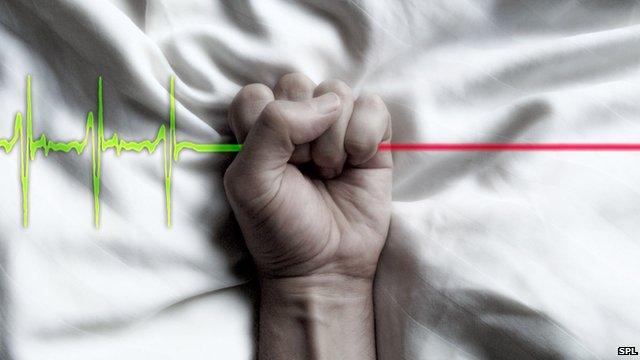Care minister Norman Lamb backs assisted dying bill
- Published
Norman Lamb MP: "The individual should be the person who decides, not the state"
Care Minister Norman Lamb has said he has "changed his mind" and would now support a new law on assisted dying.
The Liberal Democrat told BBC Newsnight an individual should be able to "make their own decision about their life".
But a cancer specialist told the programme it could create "death squads" by putting the decision in the hands of doctors.
Former Labour Lord Chancellor Lord Falconer's assisted dying bill will be debated by peers on Friday.
'Confused' law
The law change proposes to allow doctors to prescribe a lethal dose to terminally-ill patients judged to have less than six months to live.
Mr Lamb said he was speaking as an MP, not a minister, as the issue would be decided by a free vote in Parliament.
He said he had changed his mind after talking to "an awful lot of people" whose friends and relatives had died after "going through months of pain and distress".
Mr Lamb said the current situation, with families that "do not know what the law actually will do to them", was "confused".
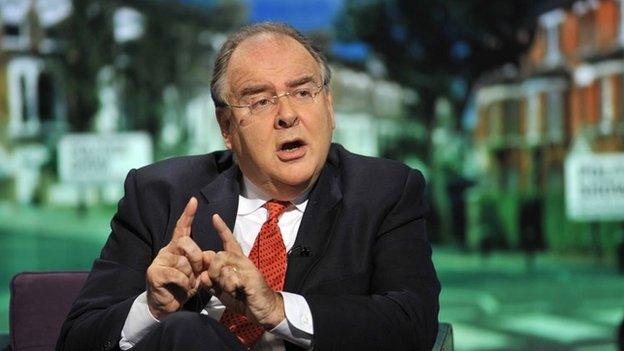
Lord Falconer's bill would legalise euthanasia in certain cases
He added: "I think that there are very clear safeguards, the safeguards are absolutely critical, in a sense it was the fear of exploitation which always caused me concern in the past.
"But ultimately, should we stand in the way of someone wanting to make their own decision about their life, or should we set the safeguards in place to ensure that there is every chance of avoiding that exploitation?
"I'm very clear in my mind that the individual should be the person who decides, not the state."

Assisted dying debate
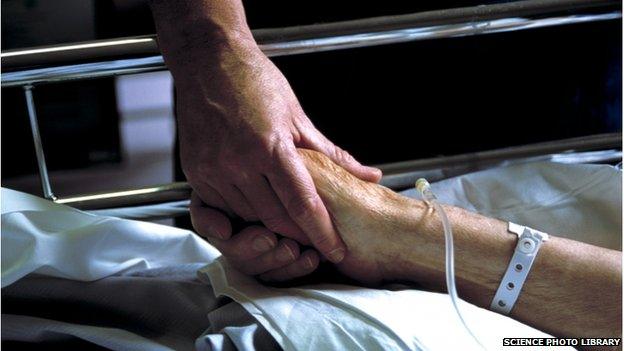
What is the current law on assisted dying around the UK?
The 1961 Suicide Act makes it an offence to encourage or assist a suicide or a suicide attempt in England and Wales. Anyone doing so could face up to 14 years in prison.
The law is almost identical in Northern Ireland. There is no specific law on assisted suicide in Scotland, creating some uncertainty, although in theory someone could be prosecuted under homicide legislation.
Have there been any previous attempts to change the law?
There have already been several attempts to legalise assisted dying, but these have been rejected.
The Commission on Assisted Dying, established and funded by campaigners who have been calling for a change in the law, concluded in 2012 that there was a "strong case" for allowing assisted suicide for people who are terminally ill in England and Wales.
But the medical profession and disability rights groups, among others, argue that the law should not be changed because it is there to protect the vulnerable in society.
What is the situation abroad?
In other countries, such as Belgium, Luxembourg and the Netherlands, legislation has been introduced to allow assisted dying. France is considering a possible introduction of similar legislation, although there is opposition from its medical ethics council.
Campaign group Dignity in Dying predicts that a lot more countries will follow suit.

Lord Falconer's bill has been backed by scientist Stephen Hawking, who said it was "discrimination against the disabled to deny them the right to kill themselves that able bodied people have".
But Prime Minister David Cameron said he was "not convinced" and warned that "people might be being pushed into things that they don't actually want for themselves".
Pam Franklin, who has motor neurone disease: "I'm too nosy to want to die"
The Church of England has called for an inquiry into the issue.
It comes after former Archbishop of Canterbury Lord Carey said he had changed his mind and was now in favour after considering cases like that of locked-in syndrome sufferer Tony Nicklinson and "the reality of needless suffering".
Cancer specialist Prof Karol Sikora told Newsnight: "I think the difficulty we have is that if you do implement the bill that's proposed on Friday, doctors are going to have to make the death decision, you're going to have to have essentially death squads, which is really out of the context of delivering good health care."
- Published17 July 2014
- Published16 July 2014

- Published17 July 2014
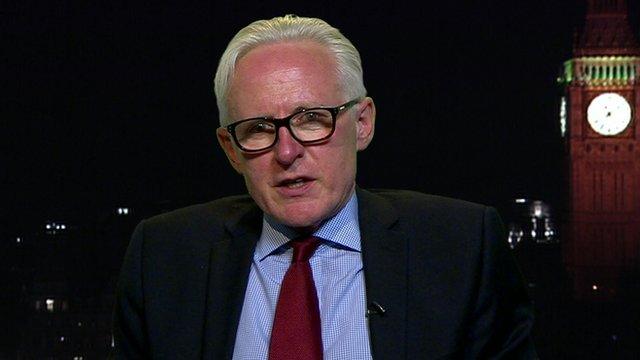
- Published10 September 2015
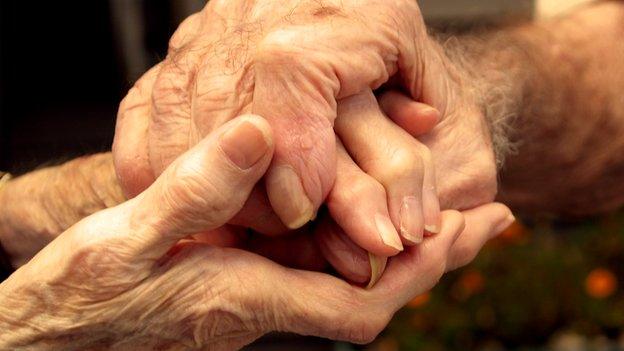
- Published21 October 2012
